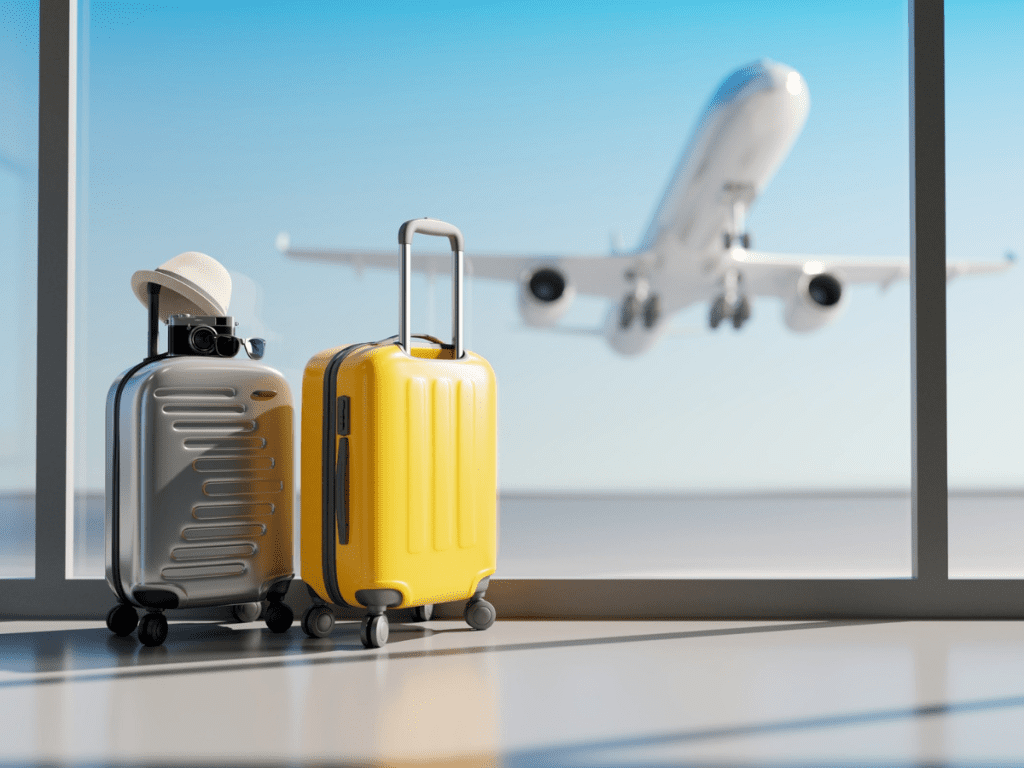Introduction
Traveling abroad can be an exciting and enriching experience. Whether you’re exploring new cultures, relaxing on a beach, or attending a business meeting, the thrill of a new destination often overshadows any concerns about health and safety. However, when a medical emergency strikes during a trip, it can turn what was meant to be an enjoyable time into a stressful and potentially costly situation. This is where travel insurance, particularly medical coverage, plays a vital role in ensuring that you are prepared for any unforeseen medical emergencies while away from home.
The Importance of Travel Insurance
Travel insurance is designed to protect you from the financial risks and inconveniences that may arise during your travels. While there are several types of travel insurance, medical coverage is one of the most crucial components. Without the proper protection, you could find yourself faced with exorbitant medical bills, long delays, or even the inability to receive care at all. This can be especially concerning when traveling abroad, where healthcare systems and medical practices vary significantly from what you may be accustomed to in your home country.
Medical emergencies are unpredictable, and they can happen at any time. You might get sick, injured in an accident, or be diagnosed with an illness that requires immediate treatment. The costs for such medical care can be extraordinarily high, especially in countries where healthcare is not subsidized by the government. Travel insurance ensures that you have access to medical services, coverage for hospitalization, and emergency transportation in the event of an illness or injury.
Common Medical Emergencies While Traveling
Medical emergencies that travelers may encounter can vary greatly depending on the location, the nature of the trip, and the health of the traveler. Some common medical emergencies include:
- Accidents and Injuries: While many travelers take precautions to avoid accidents, unforeseen events can still happen. Car accidents, falls, or injuries from outdoor activities like hiking, skiing, or water sports can lead to serious injuries. Emergency medical treatment for these injuries could include ambulance transport, surgery, hospitalization, and rehabilitation.
- Illnesses: Travelers are often exposed to new pathogens and viruses that their immune systems may not be prepared to handle. Common illnesses such as food poisoning, respiratory infections, or traveler’s diarrhea are often experienced while traveling. In more severe cases, travelers may face medical emergencies caused by conditions like heart attacks, strokes, or severe allergic reactions.
- Chronic Condition Management: Travelers with pre-existing health conditions, such as diabetes or heart disease, need to be extra cautious when traveling. A flare-up of these conditions can quickly become a medical emergency if the traveler is not able to access their usual healthcare support or medications.
- Mental Health Emergencies: Traveling to new environments can be stressful, and for some people, it can trigger anxiety, depression, or panic attacks. While mental health issues may not always be thought of as a “medical emergency,” in certain circumstances, they require immediate attention and professional care.
The Role of Travel Insurance in Medical Emergencies
Travel insurance can provide a safety net when medical emergencies arise, offering several types of coverage to ensure that you have the support needed in such situations. Here are some of the key aspects of how travel insurance works during a medical emergency:
- Emergency Medical Coverage: This is the most important component of travel insurance when it comes to medical emergencies. Emergency medical coverage helps pay for the cost of treatment if you get sick or injured during your trip. This may include doctor’s visits, hospitalization, surgery, and prescribed medications. In some cases, it also covers medical treatments for pre-existing conditions, but this depends on the specifics of your policy.
- Emergency Evacuation and Repatriation: If you are in a remote or underserved location, or if the local medical facilities are inadequate to treat your condition, travel insurance will often cover emergency evacuation to the nearest medical facility or even return you to your home country for further treatment. Repatriation of remains, in the unfortunate case of death, may also be included in your policy. These services are critical, as emergency evacuation can be extremely expensive without insurance.
- 24/7 Assistance Services: Many travel insurance providers offer 24/7 emergency assistance services. These services are invaluable when you’re in a foreign country and need help finding a hospital, arranging for transportation, or accessing medical professionals. Travel insurance companies typically have a network of hospitals and medical providers they partner with, which can help expedite your care and ensure you’re seen by reputable practitioners.
- Coverage for Trip Interruptions and Cancellations: In some cases, a medical emergency may require you to cut your trip short or cancel your plans altogether. Travel insurance often covers trip cancellations and interruptions due to medical emergencies, ensuring that you are reimbursed for any non-refundable costs such as flights, hotels, and tours. This can provide significant peace of mind in the event that your medical condition prevents you from continuing your trip as planned.
- Medical Monitoring and Communication: In serious medical emergencies, communication with family, friends, or home-based medical teams can be vital. Many travel insurance providers offer medical monitoring services that help communicate your situation to loved ones or arrange for specialized care, ensuring that you’re never truly alone during a crisis.
- Traveling with Pre-Existing Conditions: If you have a pre-existing medical condition, you might think that travel insurance won’t cover your medical expenses. However, many policies can cover conditions that are stable and well-managed. Some insurance policies may require you to disclose your condition, and they might include a rider for pre-existing conditions, which provides additional coverage in case of flare-ups or complications.
Choosing the Right Travel Insurance for Medical Emergencies
Not all travel insurance policies are the same, so it’s important to select one that adequately meets your specific needs, particularly when it comes to medical emergencies. Here are some key considerations when choosing a travel insurance policy:
- Coverage Limits: Ensure that the policy provides sufficient coverage for medical emergencies. The cost of treatment abroad can vary dramatically, and a policy with a low coverage limit might not be enough. Ideally, you should choose a plan that offers high coverage limits for medical emergencies, including emergency medical evacuation.
- Pre-Existing Conditions: If you have a pre-existing condition, check whether the policy covers medical emergencies related to it. Some policies exclude coverage for pre-existing conditions, while others may offer coverage with specific limitations. You may need to purchase an additional rider or waiver to ensure your condition is covered.
- Worldwide Coverage: Some travel insurance policies only cover certain regions, so be sure the plan covers the countries you will be visiting. If you’re traveling to multiple destinations, especially in remote or developing countries, make sure the insurance covers those areas.
- Claims Process and Reputation: It’s important to choose an insurer with a solid reputation for customer service and claims processing. You don’t want to be in a situation where you need immediate help, only to find that your insurer is difficult to reach or slow to process claims.
- Additional Coverage: In addition to emergency medical coverage, you may want to consider other types of coverage, such as trip cancellation, lost luggage, or accidental death and dismemberment. Comprehensive travel insurance that covers a variety of situations can offer greater protection.
What to Do If You Have a Medical Emergency While Traveling
If a medical emergency does arise while you’re abroad, the following steps can help you navigate the situation:
- Contact Your Travel Insurance Provider: As soon as you’re able, get in touch with your insurance provider’s emergency assistance hotline. Many providers have a 24/7 helpline to assist with medical emergencies. They can guide you on the next steps and help coordinate your care.
- Seek Immediate Medical Attention: Your health is the most important priority, so if you’re in a situation that requires urgent medical care, seek it immediately. Don’t wait for permission from your insurance provider before getting treatment—just be sure to inform them as soon as possible.
- Keep Documentation: Ensure that you keep all receipts, medical reports, and any other documentation related to your emergency care. This will be important for filing a claim and receiving reimbursement for your medical expenses.
- Follow the Insurance Provider’s Instructions: In some cases, your insurance provider may have specific procedures for receiving medical care. Follow their instructions carefully to ensure your coverage remains intact.
- Return to Your Home Country if Necessary: If the emergency requires ongoing care that cannot be provided where you are, your insurance provider may arrange for emergency evacuation back to your home country or another location with better medical facilities.
Conclusion
Travel insurance is an essential tool for anyone traveling abroad. While it may not be something that travelers typically think about when planning their trip, the benefits it provides—especially in the event of a medical emergency—can make all the difference. The financial costs of medical emergencies abroad can be astronomical, but with the right insurance coverage, you can rest assured that you’re prepared for whatever comes your way. Whether you’re traveling for leisure, business, or to visit family, travel insurance offers peace of mind and the assurance that you’re protected from unexpected medical emergencies during your travels.

